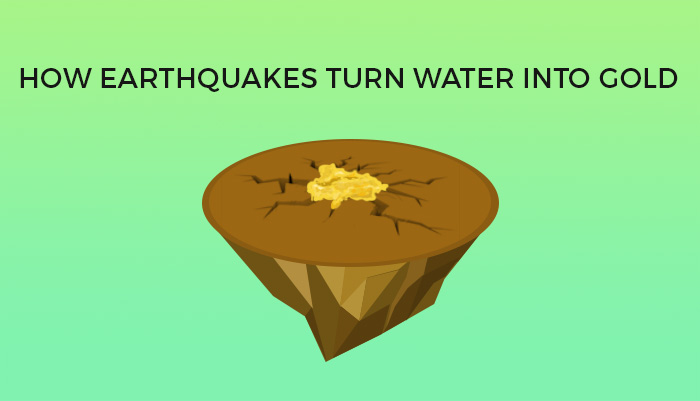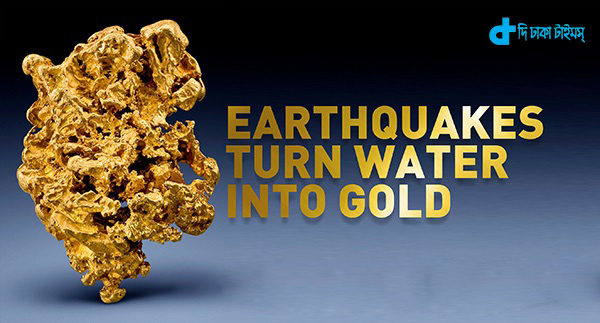Earthquakes can turn water into gold or at least move gold deposits scientists have found that water deposits gold and other elements in faults when earthquakes strike and the water vaporizes

Earthquakes Can Turn Water into Gold: Unveiling Nature’s Alchemical Process

When we think about earthquakes, imagery of demolished buildings, displaced communities, and widespread devastation often comes to mind. However, recent scientific discoveries have shed light on a remarkable phenomenon that occurs beneath the Earth’s surface during seismic events. It turns out that earthquakes have the rare ability to transform water into gold or, at the very least, shift gold deposits within the Earth’s crust.
Scientists have long been intrigued by the formation and distribution of gold on our planet. They have pondered over the grand mystery of how vast amounts of this precious metal ended up in various regions around the world. While numerous theories have been proposed, none have been able to fully explain the abundance of gold deposits in certain areas.
Intriguingly, researchers have found that water plays a crucial role in the formation of gold within faults, the regions where Earth’s tectonic plates meet. Faults are conduits through which magma and water can rise from the deep Earth towards the surface. The high pressures and temperatures encountered along these fault lines result in the vaporization of water held within the Earth’s crust.

During earthquakes, the pressure, temperature, and stress in fault zones dramatically change. These alterations cause trapped water to swiftly vaporize, creating a high-pressure steam that is released during seismic events. As this steam ascends towards the surface, it carries with it dissolved elements, including gold, picked up along the fault.
Once this gold-laden water vapor reaches cooler and shallower parts of the Earth’s crust, it undergoes a rapid cooling process. This causes the dissolved elements, such as gold, to form deposits within the rock fractures, crevices, and faults. Over millions of years, these deposits can accumulate and eventually be exposed through various geological processes, including erosion.
This groundbreaking discovery not only sheds light on how gold-rich regions are formed but also highlights the role that earthquakes play in redistributing gold deposits. Earthquakes can move and rearrange these hidden caches of gold, bringing them closer to the surface or shifting them to entirely new locations, where they can potentially be discovered and mined.
It is important to note that while this phenomenon is incredibly fascinating, it does not imply that earthquakes instantly create gold. Instead, earthquakes act as catalysts, ensuring that gold deposits are transported and deposited in accessible areas for future exploration and extraction.
Source: Live Science
In conclusion, the relationship between earthquakes and gold deposits opens up new avenues of research and provides valuable insights into the Earth’s intricate geological processes. As scientists continue to delve deeper into the mysteries of our planet, these findings pave the way for potential advancements in gold exploration and mining techniques. Through a greater understanding of nature’s alchemical process, we can make further progress in uncovering and utilizing the Earth’s hidden treasures.
Related Posts
Quick Links
Legal Stuff

